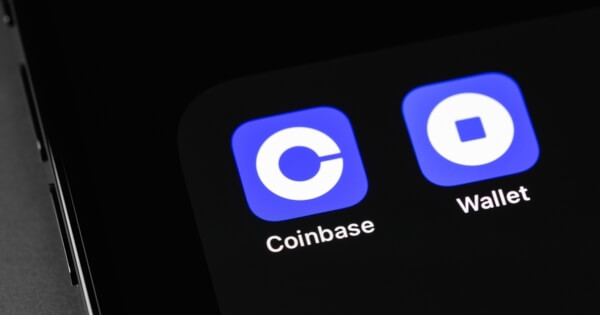Coinbase is making strides towards simplifying the onboarding process for web3, bolstering both security and recovery for crypto wallets. The company is deploying a cryptographic technique called Multi-Party Computation (MPC) to eliminate key management hurdles that have long been a barrier to mainstream web3 adoption.
The MPC technique allows multiple parties to collectively compute a function on their private inputs, all while ensuring their inputs remain confidential. This technique increases the security of wallet private keys by requiring at least two participants to create valid signatures. It further simplifies key management by distributing individual key shares among the participants, thereby reducing the likelihood of wallet break-ins.
According to research by Chainanalysis, an estimated 20% of bitcoin tokens, equivalent to over $100 billion in market value, are lost due to key mismanagement. Coinbase aims to address this issue by deploying MPC technology within its products, highlighting its benefits to end users.
In traditional web3 wallets, a user’s private key unlocks wallet ownership, much like an account password. However, there are no reset or recovery options for standard wallets. A lost private key results in the loss of access to the wallet’s funds. Coinbase believes that for web3 adoption to increase, private keys need to be secure yet recoverable. The application of MPC technology allows key control to be distributed among multiple parties, offering more reliable key recovery and stronger security.
Coinbase’s use of MPC technology addresses three major workflows: Key generation, signing, and key backup & recovery. The company leverages a threshold ECDSA (tECDSA) MPC cryptography protocol, which requires at least two out of total key shares to participate in signing to reach a consensus.
To make the wallet experience more user-friendly, Coinbase provides user-owned backup options like cloud, local, and hardware backups. These are faster and offer offline recovery, allowing users to transfer or recover their wallet without involving Coinbase servers.
In addition, Coinbase Wallet-as-a-Service (WaaS) splits the encryption key of the backup between the user and Coinbase, allowing users to authenticate themselves and regain access to their wallet while preserving their privacy and legal identity.
With its focus on bringing the next billion users on-chain, Coinbase is looking forward to setting the industry standard in the web3 ecosystem by removing friction and complexity from crypto transactions and dapp interactions. The company is currently developing products for both developers and users, including a new SDK for native apps to connect with Coinbase Wallet, and an open dapp marketplace accessible without a Coinbase account.
Credit: Source link






















 Bitcoin
Bitcoin  Ethereum
Ethereum  XRP
XRP  Tether
Tether  Solana
Solana  USDC
USDC  Dogecoin
Dogecoin  Cardano
Cardano  Lido Staked Ether
Lido Staked Ether  TRON
TRON  Wrapped Bitcoin
Wrapped Bitcoin  Wrapped stETH
Wrapped stETH  Chainlink
Chainlink  Avalanche
Avalanche  Sui
Sui  Stellar
Stellar  Litecoin
Litecoin  Toncoin
Toncoin  Shiba Inu
Shiba Inu  Hedera
Hedera  LEO Token
LEO Token  USDS
USDS  Hyperliquid
Hyperliquid  Polkadot
Polkadot  WETH
WETH  MANTRA
MANTRA  Bitcoin Cash
Bitcoin Cash  Bitget Token
Bitget Token  Ethena USDe
Ethena USDe  Wrapped eETH
Wrapped eETH  Uniswap
Uniswap  Monero
Monero  NEAR Protocol
NEAR Protocol  Pepe
Pepe  WhiteBIT Coin
WhiteBIT Coin  Aave
Aave  Bittensor
Bittensor  Ondo
Ondo  Aptos
Aptos  Internet Computer
Internet Computer  Dai
Dai  Official Trump
Official Trump  Ethereum Classic
Ethereum Classic  Mantle
Mantle  Tokenize Xchange
Tokenize Xchange  OKB
OKB  Gate
Gate  sUSDS
sUSDS  Coinbase Wrapped BTC
Coinbase Wrapped BTC 
